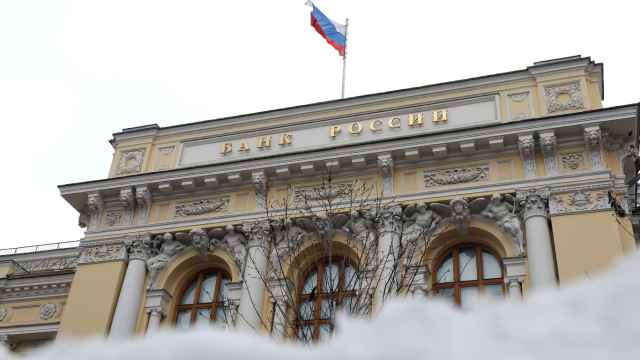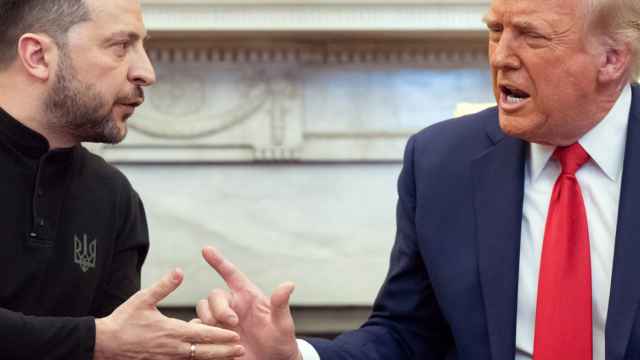When President Vladimir Putin spoke to a gathering of Russian ambassadors two weeks ago, he lamented over Russia's global reputation: "Russia's image abroad is formed not by us and as a result it is often distorted and does not reflect the real situation in our country."
Russia's image is distorted, but not in the way Putin suggested. The image fails to accurately capture the crackdown being conducted by the Kremlin, marking a turn toward rule by force. During June and July, the Kremlin moved from soft authoritarianism to a much harsher form by rejecting key constitutional rights and fundamental freedoms of speech and access to information, assembly and association. In discarding these fundamental constitutional rights and freedoms, the Kremlin essentially has launched an anti-constitutional coup.
At the same time, we need to acknowledge the emergence of the other Russia: the one presented by civil society and its drive for dignity and freedom. At the voting booth in recent parliamentary and presidential elections, as well as on the streets, Russians have made it clear that they have had enough of the corrupt, authoritarian regime.
Growing social protests and the rising opposition in dozens of cities against the rotten regime have forced the Kremlin to revert to repressive, Soviet-like measures to desperately cling to power, including:
- raids on the homes of opposition figures;
- legislation that would force nongovernmental organizations to call themselves "foreign agents" if they receive funding from outside of Russia;
- recriminalization of libel and slander, which Dmitry Medvedev decriminalized last year when he was president;
- creating a list of "harmful sites" to control the Internet, which until recently has remained largely free of government censorship;
- a sharp increase in penalties for participating in "illegal" protests; and
- finally, the Kremlin's favorite tactic: an increase in anti-American rhetoric and spy mania reminiscent of the Cold War.
The ruling elite is clearly spooked by what happened to former Egyptian President Hosni Mubarak and Libyan leader Moammar Gadhafi, as well as Ukraine's Orange Revolution in 2004. Thus, the Kremlin rules the only way it believes will guarantee its own continuing power: coercion, intimidation and force. But this is a sign of weakness, not strength.
The current summer lull among protesters is deceptive. The authorities' clampdown will only trigger more anger. A series of protests scheduled for the fall could be strengthened by broader social protests against price hikes and a general decrease in the standard of living caused by the slowdown in the economy.
During the Medvedev years, the Kremlin survived by imitating liberal policies to curry favor with Western leaders and, in some cases, receive concessions from them. But those days are over. Now, Putin doesn't even bother imitating anymore. His top concern is not losing his grip on power.
Some Western observers still naively believe that the Kremlin is simply using the scare tactics as a passing phase and that it will soften in time. This wishful thinking, though, is fundamentally a misunderstanding of the nature of the Putin regime, whose vertical power structure is starting to crumble. The Kremlin's obsession with survival is leading it toward more coercion but at the same time toward its own destruction. It is becoming more terrified and predatory. If the Putin regime is cornered, it could become a danger for both Russians and the outside world.
For the first time in Russian history, it is society, not the elite and leadership, that is striving for change. This other Russia includes intellectuals and middle class who are voicing their discontent, the younger generation that wants freedom and is not afraid to fight for it, and average citizens who are sick and tired of corruption on a daily basis.
A year ago, the fashion for a significant part of the middle class was to work for the authorities. Today, it is "fashionable" to oppose the Kremlin. Until now, apathy, opportunism, indifference and cynicism dominated Russia's attitude toward the ruling elite. Today, tens of thousands of Russians have become empowered citizens seeking dignity and pursuing life outside of the corrupt state structure. They are ready to make sacrifices to help build a more democratic Russia that offers a better future for themselves and their children. They are not afraid of a police crackdown, of being rounded up and beaten. They feel they have a mission, and that mission is not about power and politics. It is about expanding the autonomy of their lives and building a sense of community, new social structures and a moral code that Russia has long forgotten.
The thousands of volunteers who helped the victims of the Krymsk flooding are an example of the new civil society emerging. They represent an independent force that is able to do a better job than incompetent, corrupt bureaucrats. Fed up with the ineffectiveness of the rotten system, Russians are learning to rely on themselves. This new sense of community crosses ideological and political lines. Liberals, conservatives, protesters and riot police are working side-by-side as volunteers. This is the Kremlin's real nightmare. It is thus no wonder that the authorities rushed to look for ways to crack down on the volunteers after perceiving them as a threat to the state's domination.
Despite the Kremlin's efforts to co-opt and intimidate Russians, they are no longer cowing under pressure. It is this noble and brave image of Russia that offers the most hope for the future.
David Kramer, a former assistant secretary of state for democracy, human rights and labor, is president of Freedom House in Washington. Lilia Shevtsova is a senior fellow at the Carnegie Moscow Center.
A Message from The Moscow Times:
Dear readers,
We are facing unprecedented challenges. Russia's Prosecutor General's Office has designated The Moscow Times as an "undesirable" organization, criminalizing our work and putting our staff at risk of prosecution. This follows our earlier unjust labeling as a "foreign agent."
These actions are direct attempts to silence independent journalism in Russia. The authorities claim our work "discredits the decisions of the Russian leadership." We see things differently: we strive to provide accurate, unbiased reporting on Russia.
We, the journalists of The Moscow Times, refuse to be silenced. But to continue our work, we need your help.
Your support, no matter how small, makes a world of difference. If you can, please support us monthly starting from just $2. It's quick to set up, and every contribution makes a significant impact.
By supporting The Moscow Times, you're defending open, independent journalism in the face of repression. Thank you for standing with us.
Remind me later.





